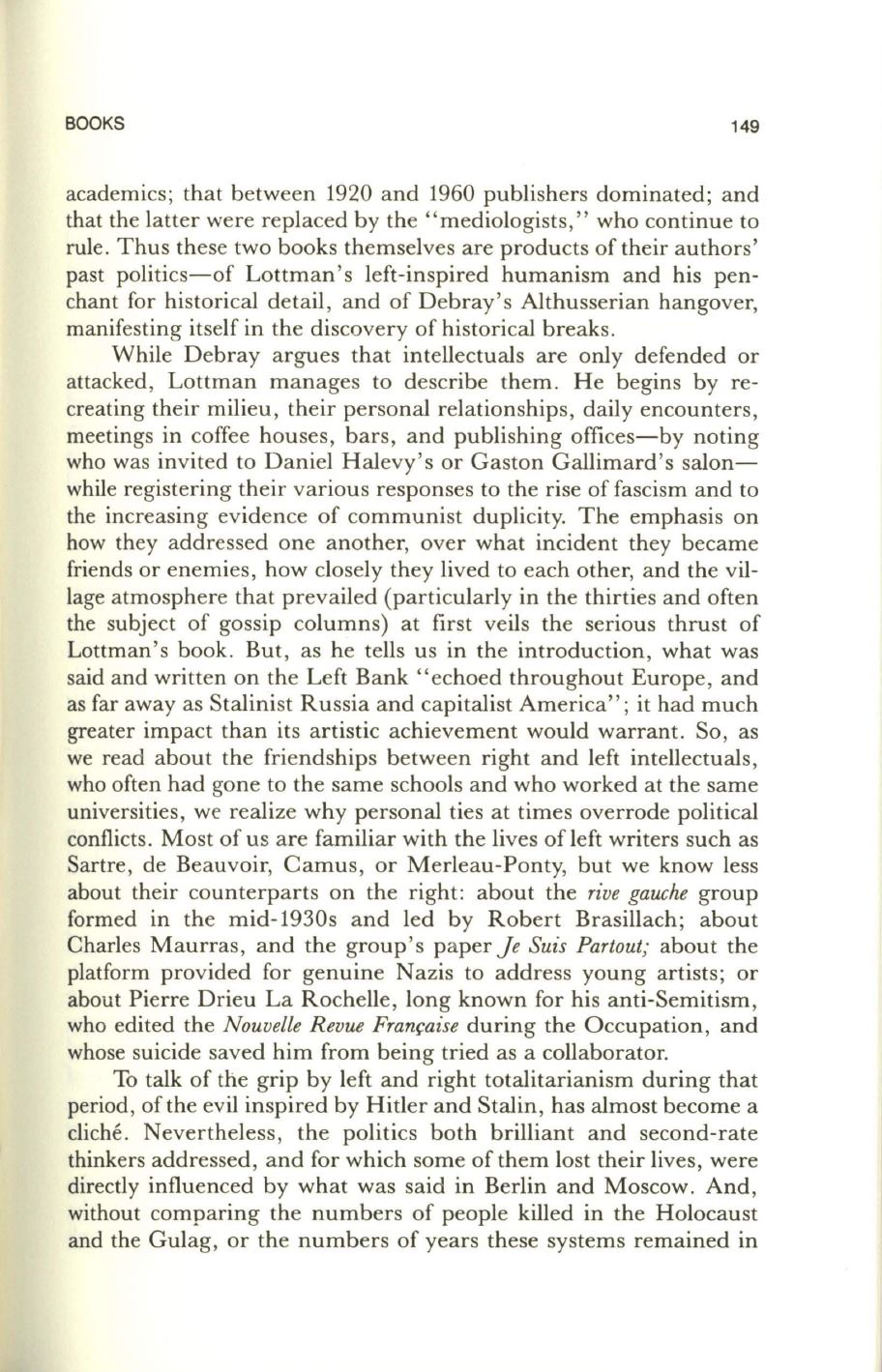
BOOKS
149
academics; that between 1920 and 1960 publishers dominated; and
that the latter were replaced by the "mediologists," who continue to
rule. Thus these two books themselves are products of their authors'
past politics-of Lottman's left-inspired humanism and his pen–
chant for historical detail, and of Debray's Althusserian hangover,
manifesting itself in the discovery of historical breaks.
While Debray argues that intellectuals are only defended or
attacked, Lottman manages to describe them. He begins by re–
creating their milieu, their personal relationships, daily encounters,
meetings in coffee houses, bars, and publishing offices-by noting
who was invited to Daniel Halevy's or Gaston Gallimard's salon–
while registering their various responses to the rise of fascism and to
the increasing evidence of communist duplicity. The emphasis on
how they addressed one another, over what incident they became
friends or enemies, how closely they lived to each other, and the vil–
lage atmosphere that prevailed (particularly in the thirties and often
the subject of gossip columns) at first veils the serious thrust of
Lottman's book. But, as he tells us in the introduction, what was
said and written on the Left Bank "echoed throughout Europe, and
as far away as Stalinist Russia and capitalist America"; it had much
greater impact than its artistic achievement would warrant. So, as
we read about the friendships between right and left intellectuals,
who often had gone to the same schools and who worked at the same
universities, we realize why personal ties at times overrode political
conflicts. Most of us are familiar with the lives of left writers such as
Sartre, de Beauvoir, Camus, or Merleau-Ponty, but we know less
about their counterparts on the right: about the
rive gauche
group
formed in the mid-1930s and led by Robert Brasillach; about
Charles Maurras, and the group's paper
Je Suis Partout;
about the
platform provided for genuine Nazis to address young artists; or
about Pierre Drieu La Rochelle, long known for his anti-Semitism,
who edited the
Nouvelle Revue Franraise
during the Occupation, and
whose suicide saved him from being tried as a collaborator.
To talk of the grip by left and right totalitarianism during that
period, of the evil inspired by Hitler and Stalin, has almost become a
cliche. Nevertheless, the politics both brilliant and second-rate
thinkers addressed, and for which some of them lost their lives, were
directly influenced by what was said in Berlin and Moscow. And,
without comparing the numbers of people killed in the Holocaust
and the Gulag, or the numbers of years these systems remained in


